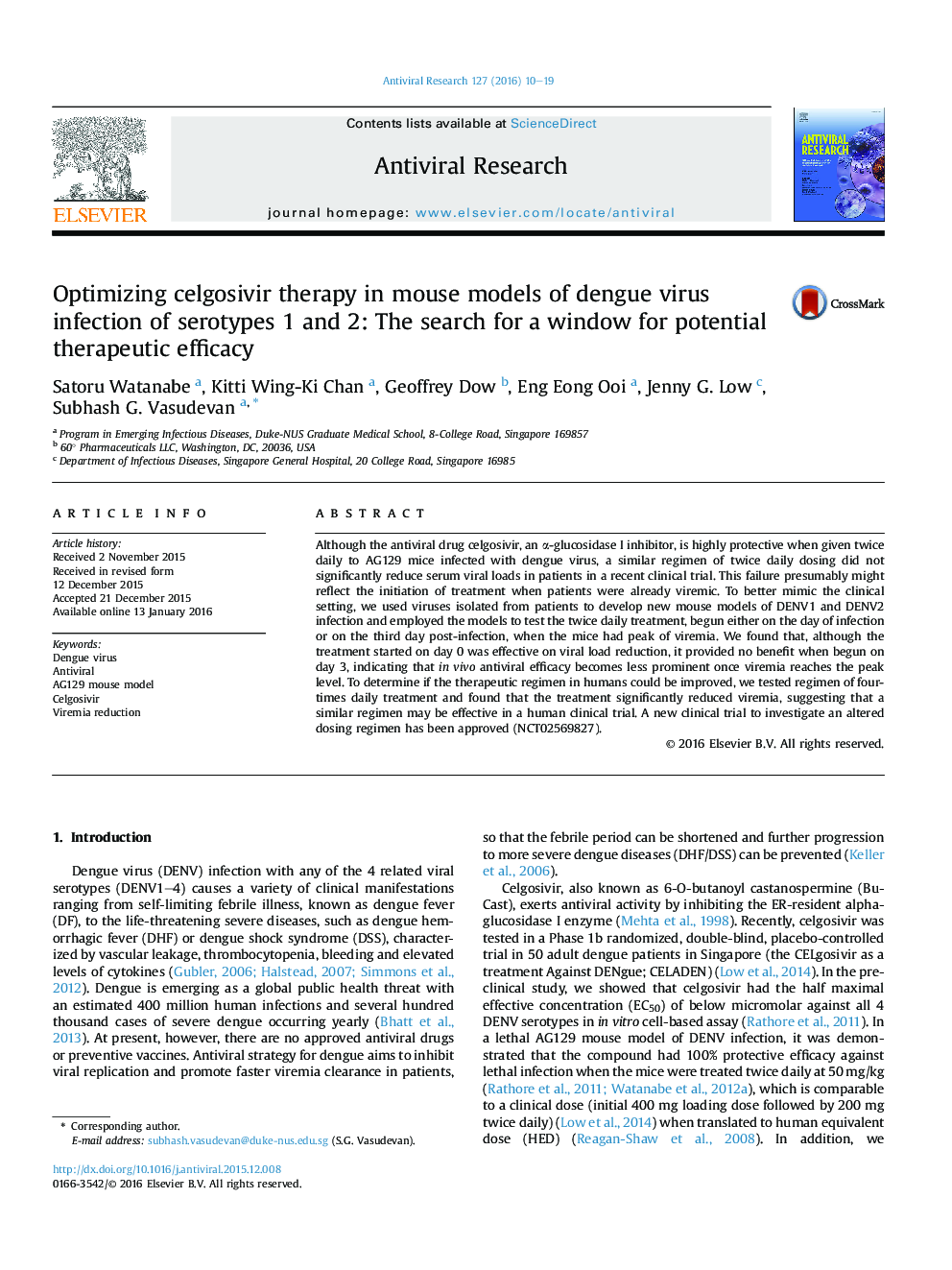| Article ID | Journal | Published Year | Pages | File Type |
|---|---|---|---|---|
| 2509801 | Antiviral Research | 2016 | 10 Pages |
•The efficacy of celgosivir differs among different cell lines and viral strains.•Clinical strains of DENV1 and 2 can induce high levels of viremia and mortality in AG129 mice.•Celgosivir is beneficial against clinical DENV strains when the treatment is started at the time of infection in mice.•Antiviral effect on controlling viremia becomes less prominent once viremia reaches the peak level in mice.•Increased dosing of celgosivir achieves a significant lower viral load even when the mice are viremic.
Although the antiviral drug celgosivir, an α-glucosidase I inhibitor, is highly protective when given twice daily to AG129 mice infected with dengue virus, a similar regimen of twice daily dosing did not significantly reduce serum viral loads in patients in a recent clinical trial. This failure presumably might reflect the initiation of treatment when patients were already viremic. To better mimic the clinical setting, we used viruses isolated from patients to develop new mouse models of DENV1 and DENV2 infection and employed the models to test the twice daily treatment, begun either on the day of infection or on the third day post-infection, when the mice had peak of viremia. We found that, although the treatment started on day 0 was effective on viral load reduction, it provided no benefit when begun on day 3, indicating that in vivo antiviral efficacy becomes less prominent once viremia reaches the peak level. To determine if the therapeutic regimen in humans could be improved, we tested regimen of four-times daily treatment and found that the treatment significantly reduced viremia, suggesting that a similar regimen may be effective in a human clinical trial. A new clinical trial to investigate an altered dosing regimen has been approved (NCT02569827).
